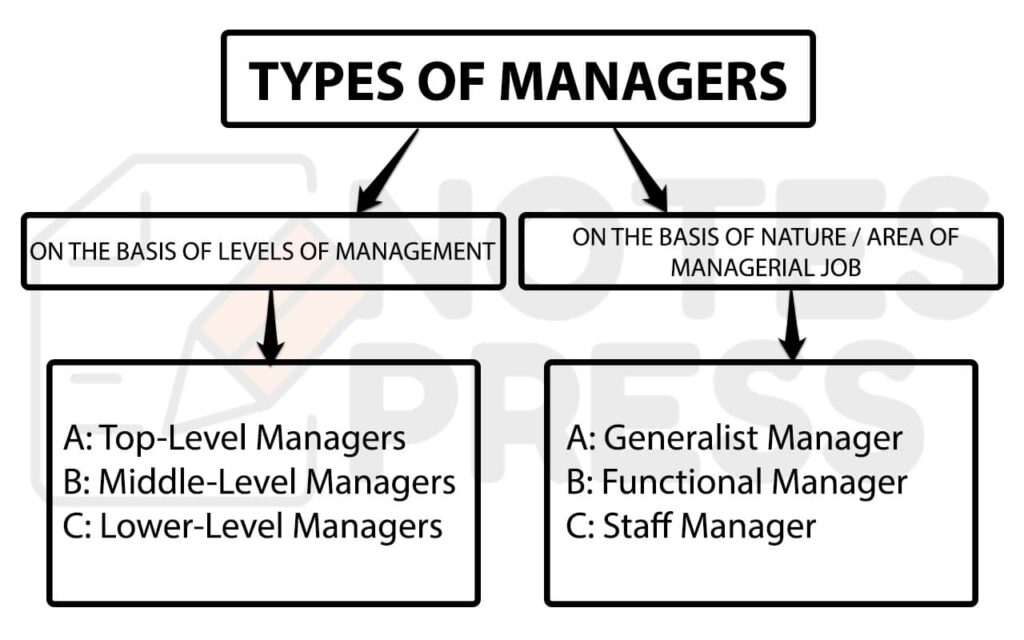Managerial Roles and Responsibilities: Different Types Of Managers In An Organization
Different types of managers in an organization – Managers play a crucial role in shaping organizational success. Their diverse roles and responsibilities impact every aspect of an organization, from strategic planning to daily operations. Understanding the different managerial roles and their associated responsibilities is essential for effective organizational management.
In organizations, managers fulfill diverse roles, each requiring a unique skillset. To make optimal decisions, managers can leverage game theory, a mathematical framework for analyzing strategic interactions. Decision Making Using Game Theory: An Introduction for Managers provides insights into this powerful tool, empowering managers to navigate complex decision-making scenarios and achieve desired outcomes.
Types of Managers
- Top-Level Managers:CEOs, Presidents, and Executive Directors set the overall vision and direction for the organization. They are responsible for long-term strategic planning, resource allocation, and external relations.
- Middle Managers:Vice Presidents, Directors, and Department Heads oversee specific divisions or departments within the organization. They are responsible for implementing strategic plans, managing budgets, and coordinating with other departments.
- First-Line Managers:Supervisors and Team Leaders directly manage employees and are responsible for day-to-day operations. They assign tasks, provide feedback, and ensure that work is completed efficiently.
Organizational Structure and Management
Organizational structure defines the reporting relationships and communication channels within an organization. It influences the roles and responsibilities of managers at different levels. Hierarchical structures have clear lines of authority, while flatter structures empower lower-level managers with more decision-making authority.
Within an organization, managers assume various roles, each with distinct responsibilities. Among them, operations managers play a crucial role in overseeing the efficient execution of day-to-day operations. Their core responsibilities, as outlined in this article , include optimizing processes, ensuring quality control, and managing supply chains.
Operations managers collaborate closely with other managers in areas such as finance, human resources, and marketing to ensure the smooth functioning of the entire organization.
Management Theories and Practices
- Classical Management Theory:Focuses on efficiency and productivity, emphasizing clear lines of authority and specialization.
- Behavioral Management Theory:Emphasizes the importance of human behavior and motivation in organizational success.
- Contingency Theory:Recognizes that there is no one-size-fits-all management approach and that the best approach depends on the specific situation.
Effective Management in Different Contexts, Different types of managers in an organization
Effective management practices vary depending on the organizational context. In fast-paced, innovative industries, managers need to be adaptable and willing to take risks. In more traditional settings, managers may need to focus on stability and efficiency.
From frontline supervisors to senior executives, different types of managers play crucial roles in an organization. Their responsibilities encompass planning, organizing, leading, and controlling. However, they also face challenges of human resource management , such as employee recruitment, training, and performance evaluation.
Effective management requires a deep understanding of human behavior and the ability to motivate and inspire teams.
Ending Remarks

In conclusion, the effectiveness of different types of managers in an organization hinges on their ability to adapt to changing circumstances, motivate their teams, and drive results. By understanding the diverse roles and responsibilities of managers, organizations can optimize their management structures, enhance decision-making, and foster a thriving work environment that propels the organization towards success.
Within an organization, managers can fulfill various roles, from project management to operations leadership. Regardless of their specific function, the characteristics of an ideal manager remain consistent. These include strong communication skills, the ability to motivate and inspire teams, and a deep understanding of the industry.
Ultimately, the effectiveness of different types of managers in an organization depends on their ability to embody these essential qualities.
FAQ Corner
What are the key qualities of an effective manager?
Effective managers possess a combination of strong leadership skills, communication abilities, problem-solving capabilities, and a deep understanding of their industry and team.
How does organizational structure influence the roles of managers?
Organizations have different types of managers, each with their own unique set of responsibilities and expertise. To effectively manage a global workforce, organizations need to understand the cultural differences that exist between employees. For more information on this topic, refer to the article cross cultural management an international journal.
By understanding these differences, organizations can create a more inclusive and productive work environment for all employees.
Organizational structure defines the reporting relationships, levels of authority, and responsibilities of managers. Different structures, such as hierarchical or flat structures, impact the roles and decision-making abilities of managers.
What are the common challenges faced by managers in different organizational contexts?
Managers may face challenges such as managing remote teams, adapting to technological advancements, navigating cultural differences, and balancing stakeholder interests.
In an organization, different types of managers are responsible for ensuring that employees understand the consequences of their actions. Consequence management is a critical aspect of maintaining a productive and ethical work environment, and it requires managers to be able to clearly communicate expectations, provide feedback, and take appropriate disciplinary action when necessary.
Different types of managers play a crucial role in creating a culture of accountability and ensuring that employees are aware of the consequences of their behavior.
With the diverse range of managers in an organization, each holding distinct responsibilities, it becomes crucial to consider their roles in crisis management. From line managers responsible for day-to-day operations to senior executives overseeing strategic decision-making, each manager plays a vital role in navigating and mitigating organizational crises.
In an organization, managers can specialize in various domains. For instance, construction managers oversee projects and ensure their timely completion. According to sources , construction managers with an associate degree can earn an average salary of $70,000 per year. Returning to the topic of different types of managers, they may also focus on areas such as finance, human resources, or marketing.